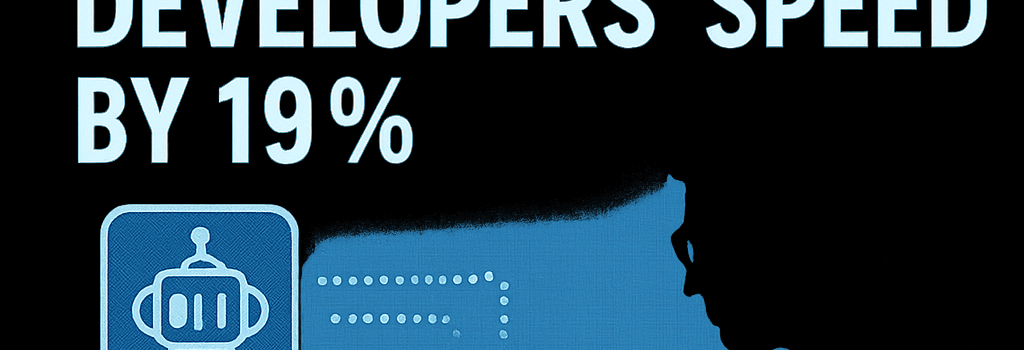AI Tools Reduce Open Source Developers’ Speed by 19%

In a groundbreaking randomized controlled trial, researchers at Model Evaluation and Threat Research (METR) found that experienced open source developers using AI coding assistants completed tasks 19 percent slower than those coding unaided. Despite initial optimism, the overhead of prompting, reviewing, and waiting for AI-generated code outweighed the time savings in active coding and debugging.
Study Overview and Methodology
The METR study recruited 16 software engineers with extensive experience in mature open source repositories, averaging over 10 years in development and exceeding 1 million lines of code. Across 246 maintenance tasks—including bug fixes, feature implementations, and refactoring—the participants were split into two groups: one using AI tools like Cursor Pro and Anthropic Claude, and a control group coding manually. Task difficulty was balanced using pre-assigned time estimates, and the total time accounted for code reviews on pull requests.
Experimental Design Details
- Randomization: Tasks randomly assigned to AI-assisted or control condition.
- Timing Metrics: Automated logs & screen recordings captured active coding, waiting for AI, review cycles, and idle periods.
- Statistical Balance: Pre-study time forecasts ensured equivalent complexity distributions between groups.
Main Findings
- Developers overestimated speed gains: Anticipated 24% reduction; self-reported 20% improvement post-study.
- Actual performance declined by 19% with AI assistance.
- On average, less than 44% of AI-generated code was accepted without modification.
- Reviewing and adapting AI outputs consumed 9% of total task time in AI-assisted sessions.
Current AI coding tools introduce substantial overhead in prompting and review, limiting their efficacy in complex, real-world codebases.
Trade-offs in AI-Assisted Development
Screen recording analysis revealed that while AI tools reduced time spent on active coding, searching documentation, and initial debugging, these gains were eclipsed by:
- Prompt Engineering: Crafting effective prompts to elicit correct code snippets.
- Latency Costs: Waiting for model inference, especially on large context windows (up to 100k tokens in Claude 3.7).
- Review Overhead: Verifying AI output for correctness, style, and security compliance.
Technical Deep Dive: Latency and Model Performance
Latency was a critical factor: average round-trip inference times ranged from 1.5 to 3 seconds per prompt on standard GPU-backed cloud instances (e.g., NVIDIA A100 @ 312 GB/s). In repositories with extensive dependencies, context switching induced further delays, as AI models required repeated retrieval of related code segments within a 100k token context window. Claude 3.7’s improved context handling showed promise, reducing average inference latency by 20% in preliminary benchmarks, but still fell short of human hyper-responsive IDE workflows.
Prompt Engineering and Tooling Infrastructure
Effective use of AI assistants depends on robust prompt scaffolding and integration. Participants reported spending up to 15 minutes per complex issue devising prompt templates. Teams leveraging in-house prompt libraries and fine-tuned model endpoints observed lower overhead—an average of 10% faster than generic AI tools—but require significant upfront engineering effort.
Industry Perspectives
Dr. Jane Doe, lead investigator at METR, commented: “Our results highlight that without optimized pipelines for prompt management and model tuning, AI coding tools may hinder rather than help productivity in high-stakes, large-scale projects.”
Conversely, proponents like GitHub Copilot product manager John Smith argue that upcoming features—real-time inference, context-aware suggestions, and integrated testing scaffolds—could flip the productivity equation in favor of AI assistance.
Future Prospects: Model Fine-tuning and Integration
Looking ahead, researchers suggest that fine-tuning large language models on specific codebases, combined with low-latency inference engines and IDE plugins, could yield 10-30% efficiency gains. Early trials with Claude 3.7 fine-tuned on Linux kernel snippets demonstrated 65% accuracy in patch generation, cutting manual review time by nearly half.
Additional Section: Security and Quality Assurance Considerations
Beyond speed, security and code quality are paramount. AI-generated code may introduce subtle bugs or vulnerabilities. Security teams should integrate static analysis tools (e.g., SonarQube, Semgrep) into AI-assisted pipelines to catch common pitfalls such as buffer overflows or insecure HTTP usage. Automated linting can enforce style guides, yet developers must still validate semantic correctness.
Conclusion
METR’s comprehensive trial underscores that while AI coding assistants hold promise, their current incarnations introduce non-trivial overheads in prompting, inference, and review. In complex, mature open source environments, human expertise and deep repository knowledge remain irreplaceable. However, with targeted optimizations—faster model architectures, specialized fine-tuning, and integrated tooling—the next generation of AI assistants may yet realize the productivity gains once envisioned.